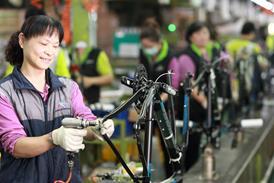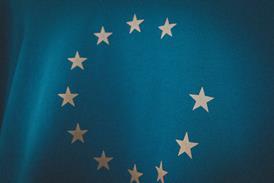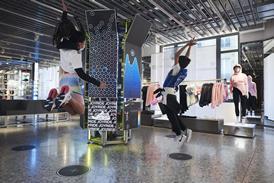Many people wash their clothes for fear of viruses more often than before, the new study by Polygiene found. This, in turn, has an enormous impact on our environment. With the new ViralOff finish for textiles, viruses are killed within two hours - without any washing.
The Swedish textile supplier Polygiene is best known for using its products to minimize bacteria’s growth on clothing because bacteria cause bad odors. But Polygiene also has some experience in the fight against viruses: the company started in the healthcare sector in 2004 during the battle against SARS. Thanks to this background, Polygiene was able to launch the new Polygiene ViralOff brand in a short time. With the ViralOff finish, viruses like the new SARS-CoV-2 disappear from textiles within two hours. That means: Textiles do not have to be washed for fear of infection. “Consumers can be assured that they will not have to over-wash their product because they are concerned about whether harmful microbes are present. The product essentially self-cleans itself”, explains Ulrika Björk, CEO of Polygiene.
To find out how the pandemic is affecting people’s laundry habits, Polygiene surveyed 625 Americans. “We found out that two-thirds of the people wash considerably more than before the pandemic,” explains Ulrika Björk, because they are afraid of viruses. Of those individuals, more than 30 percent said they would wash much or very much more often, and even every time after wearing the clothing in public. Covid-19 thus significantly changed washing behavior, the study found, at the expense of the environment. Polygiene has calculated the added CO2 emissions associated with this behavior: Even before Covid-19, the average washing machine in the U.S. did seven loads per week; the 20 percent increase would be roughly the equivalent of over 3.5 million additional cars. Besides, there are other factors such as water consumption, the emission of microplastics and chemicals.
And last but not least, the premature disposal: Nine out of ten clothing items end up in the trash far too early because they have been washed too often and discolor, deform or shrink. Björk: “Our lifecycle analysis shows that about 2/3 of the environmental impact of a product is post-purchase. It can be the most sustainably built product, but if you are washing it every time it was used or – as it is sometimes the case with fast fashion – dispose of it prematurely after a single season or a “night out,” the impact is significant. For example, extending the life of clothing an extra nine months of active use would reduce carbon, waste and water footprints by around 20-30 percent.” All of this has to be taken seriously if we want to find out what ecological footprint textiles have during their life cycle and how it can be reduced.
According to the study, fear of viruses is currently the third most important reason people wash their clothes – after visible dirt and unpleasant smells. There is much to suggest that the fear of viruses persists in the long term and, for example, prevents people from trying on clothes. If you also consider that washing is a tiresome activity for most people, antiviral treatment has many advantages for people and the environment.
But would people actually change their behavior because of the new finish? “Changing consumer behavior is probably one of the most challenging things you can do,” says Ulrika Björk. “We are inherently ingrained in our routines and habits, and we are taught from an early age to wash our clothes after wearing them. Unfortunately, this contributes to a large environmental impact and is not sustainable.” But it is indeed possible, according to the study. To achieve this goal, consumers would first have to become aware of the impact of their behavior. According to the study, this only applies to one in three on average. Also, few people know that there is an alternative to washing. Asked whether such an antiviral treatment would change their laundry behavior, 70 percent said they would wash less.
The not-insignificant question remains, would consumers also pay more for an antiviral treatment? For a face mask, respondents would accept a 40 percent higher cost. For clothing, they would pay between 38 and 45 percent more, even if they continued to wash a lot. A good result, even if it shows that there is still a lot of educational work to be done.
Polygiene ViralOff

Polygiene ViralOff is a brand for a treatment of textiles and other products that reduces tested viruses by 99% in two hours*
In the times of the novel Coronavirus, we see an enormous need for treatment with antiviral properties. Polygiene once started in the care segment during the fight against SARS in 2004. Thanks to our background, we could go through the necessary techniques, skills, methods, and processes needed to prepare for the launch of the brand Polygiene ViralOff® – textile treatment technology.







